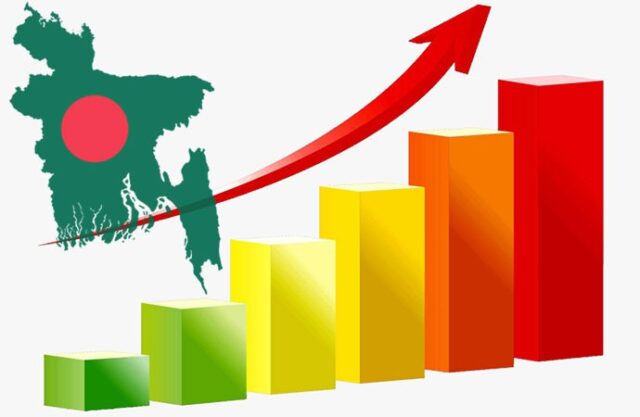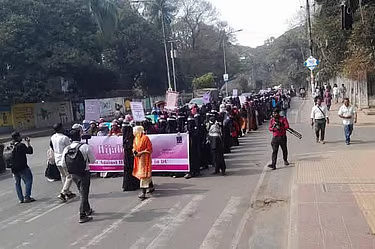Dhaka, December 1, 2024 – A comprehensive White Paper on the State of the Bangladesh Economy, released yesterday, has painted a stark picture of the nation’s economic health, highlighting systemic challenges and the urgent need for reforms. Commissioned by the Interim Government, the report exposes widespread corruption, institutional decay, and structural weaknesses that threaten the country’s growth trajectory.
Prepared by a panel of eminent economists led by Dr Debapriya Bhattacharya, the document dives into macroeconomic stability, revenue mobilization, public investments, social disparities, and climate resilience. It also outlines a pathway for Bangladesh to restore economic resilience and regain the trust of its citizens.
Other members of the committee include Professor A K Enamul Haque, Deputy Vice Chancellor, UCSI University, Bangladesh Branch and Director, Economic Research Group, Dhaka; Ms. Ferdaus Ara Begum, CEO, Business Initiative Leading Development (BUILD); Dr. Imran Matin, Executive Director, BRAC Institute of Governance and Development (BIGD); Dr. Kazi Iqbal, Research Director, Bangladesh Institute of Development Studies (BIDS); Dr. M Tamim, Professor, Bangladesh University of Engineering and Technology (BUET); Dr. Mohammad Abu Eusuf, Professor, Department of Development Studies and Director, Centre on Budget and Policy, University of Dhaka and Executive Director, Research and Policy Integration for Development (RAPID); Professor Mustafizur Rahman, Distinguished Fellow, Centre for Policy Dialogue (CPD); Dr. Selim Raihan, Professor, Department of Economics, University of Dhaka and Executive Director, South Asian Network on Economic Modeling (SANEM); Ms. Sharmind Neelormi, Professor, Department of Economics, Jahangirnagar University; Dr. Tasneem Arefa Siddiqui, Professor, Department of Political Science, University of Dhaka and Founding Chair, Refugee and Migratory Movements Research Unit (RMMRU); and Dr. Zahid Hussain, Former Lead Economist, World Bank Bangladesh.
The report points to serious macroeconomic stress:
- Inflation has remained persistently high, fueled by global commodity prices, exchange rate mismanagement, and domestic inefficiencies. Low-income families are bearing the brunt of the price surges.
- The banking sector is in crisis, with non-performing loans reaching alarming levels, equivalent to Tk 2,11,391 crores. Politically motivated lending and weak regulatory oversight are major contributors.
- Foreign exchange reserves have plummeted due to declining remittances and poorly managed exchange rate policies.
- Rising public debt, now at nearly 40% of GDP, has constrained fiscal space for critical social investments.
Corruption Drains Public Resources
One of the most striking findings of the White Paper is the pervasiveness of corruption in public investments. Between $14 billion and $24 billion have been siphoned off from major infrastructure projects in the last 15 years due to inflated costs, bribery, and nepotism. Cost overruns and delays plague nearly every large-scale project, depriving citizens of the promised benefits.
The report also highlights how politically connected elites have exploited tax exemptions and government contracts, exacerbating inequality and fiscal inefficiencies.
Social Inequality and Environmental Crisis
While Bangladesh has made progress in reducing poverty, the benefits of growth have not been equitably distributed. Key concerns include:
- Education gaps, worsened by post-COVID learning losses and underfunded public schools.
- Healthcare inequities, with high out-of-pocket expenses making basic services unaffordable for many.
- Gender disparities, as women continue to face barriers in employment, education, and financial inclusion.
The report also flags Bangladesh’s worsening environmental situation, including alarming levels of air and water pollution. Climate adaptation projects, crucial for a country so vulnerable to rising sea levels, are often mismanaged and riddled with corruption.
A Call for Urgent Reforms
The White Paper outlines a comprehensive roadmap to address these challenges, including:
- Strengthening institutions to restore governance and accountability.
- Diversifying the economy by investing in high-tech industries and sustainable agriculture.
- Expanding social investments in education, healthcare, and social protection programs.
- Improving fiscal policies by expanding the tax base and eliminating inefficiencies.
- Enforcing environmental regulations to curb pollution and improve climate resilience.
Leadership Speaks
Dr. Debapriya Bhattacharya, Chair of the White Paper Committee, stated during the release, “This report is both a diagnosis and a call to action. Bangladesh stands at a critical juncture where systemic reforms are not optional—they are essential for sustainable growth.”
The Interim Government, led by Chief Adviser Professor Muhammad Yunus, has committed to reviewing the findings and taking decisive steps to address the nation’s economic woes.
Public Reaction and International Implications
Civil society groups and international observers have lauded the White Paper for its transparency and depth. However, they caution that implementation will require strong political will and collaboration across sectors.
As Bangladesh prepares for its next phase of development, the findings of the White Paper serve as both a wake-up call and a roadmap, reminding stakeholders that progress can only be achieved through accountability, inclusivity, and strategic planning.









